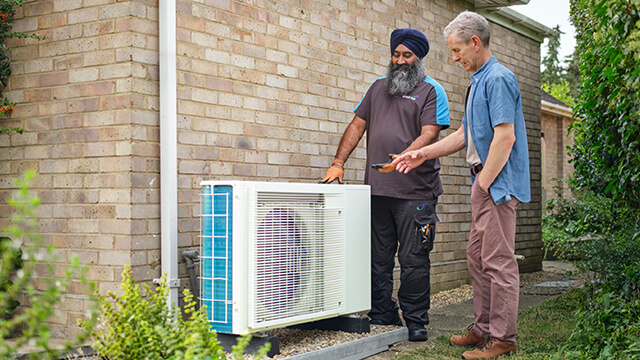Optimizing the efficiency of a heat pump is crucial for both cost savings and comfort in your home. Proper maintenance and best practices play a significant role in ensuring that your heat pump operates at peak performance throughout its lifespan. Regular maintenance is essential for keeping the system running smoothly. Begin by cleaning or replacing the air filters monthly. Dirty filters can restrict airflow, reducing the heat pump’s efficiency and potentially leading to system malfunctions. Next, ensure that the outdoor unit is free from debris such as leaves, branches, and dirt. A clear area around the unit allows for better airflow and helps the system perform more efficiently. It is also important to keep the coils of the heat pump clean. Over time, dust and dirt can accumulate on the evaporator and condenser coils, which impair heat exchange and can cause the system to overheat. Regularly inspect and clean the coils to maintain optimal performance. Additionally, check the insulation on the refrigerant lines. Proper insulation helps maintain the temperature of the refrigerant as it travels between the indoor and outdoor units, improving the overall efficiency of the heat pump.

Another key aspect of maintenance is ensuring that the thermostat is functioning correctly. Programmable or smart thermostats can help manage your home’s temperature more efficiently by adjusting settings based on your schedule and preferences. Make sure to calibrate the thermostat periodically to ensure accurate temperature readings and efficient operation. Additionally, inspect the ductwork for any leaks or damage. Leaky ducts can cause a significant loss of heated or cooled air, reducing the efficiency of the heat pump. Sealing and insulating any leaks in the ductwork can help maintain consistent temperatures and reduce energy consumption. Scheduling professional maintenance at least once a year is also highly recommended. A qualified technician can perform a thorough inspection of the heat pump efficiency chart, checking for issues that may not be apparent during regular maintenance. This includes examining the system’s refrigerant levels, inspecting the electrical components, and ensuring that all parts are functioning correctly. Professional maintenance can help identify and address potential problems before they escalate into costly repairs.
In addition to regular maintenance, consider upgrading to a higher-efficiency heat pump if your current system is outdated. Modern heat pumps are designed with advanced technology that improves efficiency and reduces energy consumption. Look for units with high Seasonal Energy Efficiency Ratios SEER and Heating Seasonal Performance Factors HSPF to ensure you are investing in a system that will deliver optimal performance. Finally, managing your home’s overall energy efficiency can also impact the effectiveness of your heat pump. Proper insulation, weatherstripping around doors and windows, and using energy-efficient window coverings can help reduce the workload on your heat pump and enhance its performance and visit www.jnodenergy.com. By following these maintenance tips and best practices, you can ensure that your heat pump operates efficiently, providing consistent comfort and reducing energy costs over time.